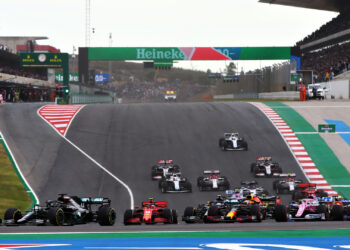Hyundai has been dealt a blow in Rally Chile after their protest against the revised notional times for the rally’s first stage was dismissed, costing Ott Tänak his hard-earned lead. The controversy erupted when stage one was red-flagged after only the first three cars—Thierry Neuville, Sébastien Ogier, and Tänak—had completed it, forcing the rest of the field to drive through in road mode.
Initially, times were set using Neuville’s slower run, the least competitive of the three completed times. However, following further analysis after stage four, Toyota’s sporting director Kaj Lindström successfully requested adjustments, arguing that the second run of the Pulperia test showed discrepancies in the original allocation. As a result, Elfyn Evans was awarded an additional 3.4 seconds, promoting him to the overnight lead while demoting Tänak to second place, just three seconds off the top spot.
Hyundai’s Rejected Protest
Hyundai quickly lodged a protest against the recalculated times, arguing that notional times should be based on the fastest stage time (Ogier’s) rather than Neuville’s slower run. They contended that the adjustment process should be more subjective, considering specific race conditions and driver performance.
However, the stewards disagreed, upholding the initial decision of the Clerk of the Course, citing that the applied method—using the slowest time as a baseline—was both fair and within the accepted procedures of the WRC. The stewards emphasized that there is no single correct way to allocate notional times, and consistency in approach is key to fairness.
Stewards’ Rationale: Fairness Over Subjectivity
The stewards acknowledged that various methods could yield different outcomes and that subjective judgments could lead to disputes among teams. They argued that the Clerk of the Course must be objective and not influenced by individual car circumstances, as “judgment of probabilities of uncertain facts” plays a crucial role in the process. The decision highlighted that an incident-free stage might have led to different results—either slower or faster times.
Despite recognizing that Hyundai’s proposed method could have been valid, the stewards maintained that the approach taken by the Clerk of the Course was “fair and reasonable.” Consequently, Hyundai’s appeal failed to prove that the revised times unfairly disadvantaged Tänak.
FIA’s Defense of Notional Time Allocations
Representing the Clerk of the Course, FIA Sporting Delegate and two-time World Rally champion co-driver Timo Rautiainen defended the use of Neuville’s slower time. He explained that, historically, the WRC prefers to set notional times using the slowest recorded time among the drivers, not the fastest, to ensure fairness across the board.
The controversy deepened when Lindström’s request prompted additional reviews and adjustments after stage four, affecting the times for Evans, Sami Pajari, and M-Sport’s Adrien Fourmaux. Although the Clerk of the Course initially saw no need for revisions, the subsequent appeal from Toyota led to further adjustments favoring their drivers.
Rautiainen reiterated that while allocating notional times is not an exact science, the established procedure aims to maintain a level of fairness acceptable to the majority, despite the inherent variability in individual perspectives of what is fair.
Conclusion
The outcome leaves Hyundai frustrated as Tänak’s lead evaporates amid complex regulations and subjective interpretations of fairness in rally racing. The ruling underscores the ongoing challenges faced by officials in maintaining consistent standards in the high-stakes environment of the WRC, where split-second decisions can have significant impacts on championship standings.










